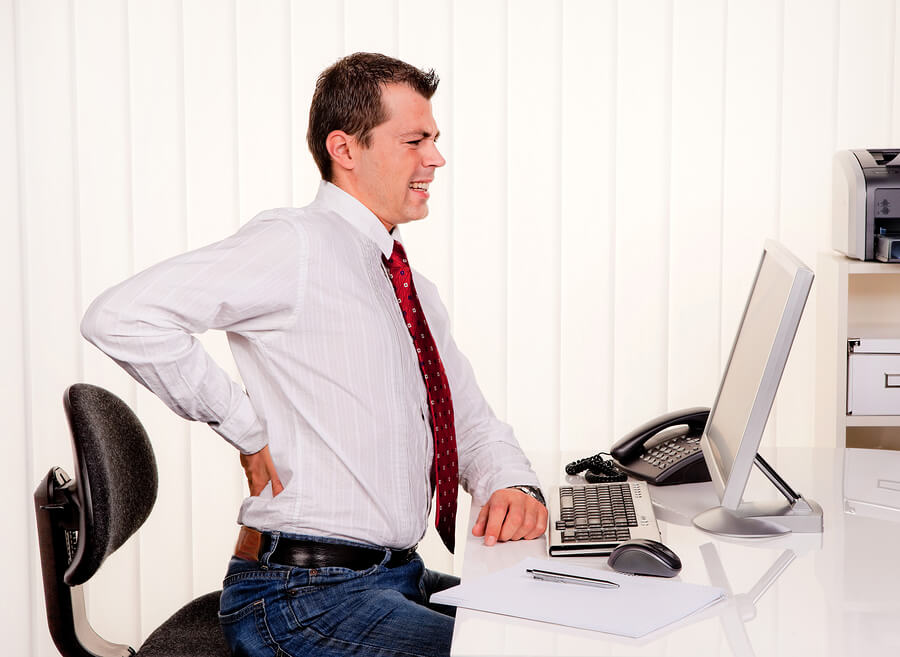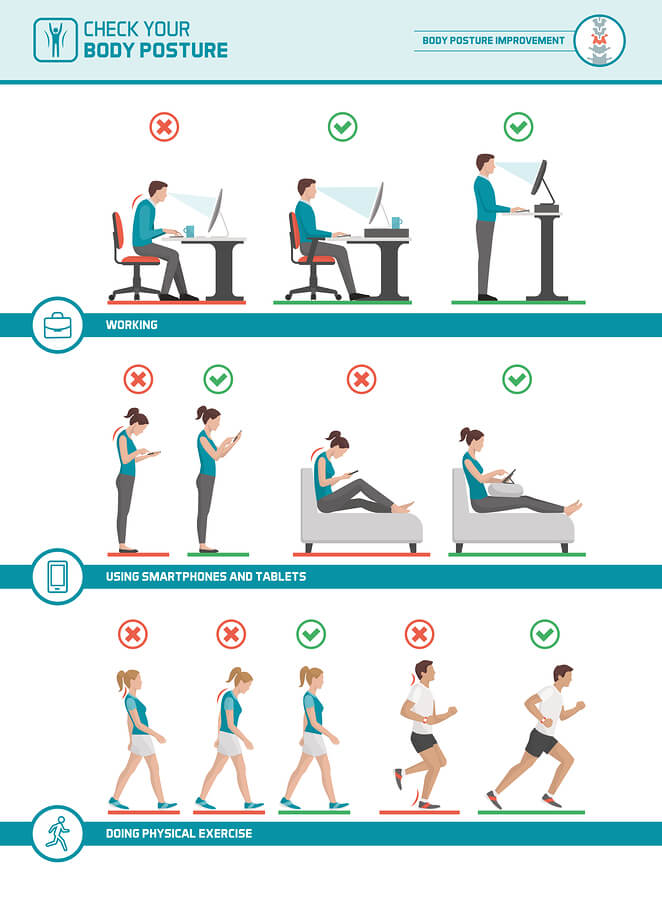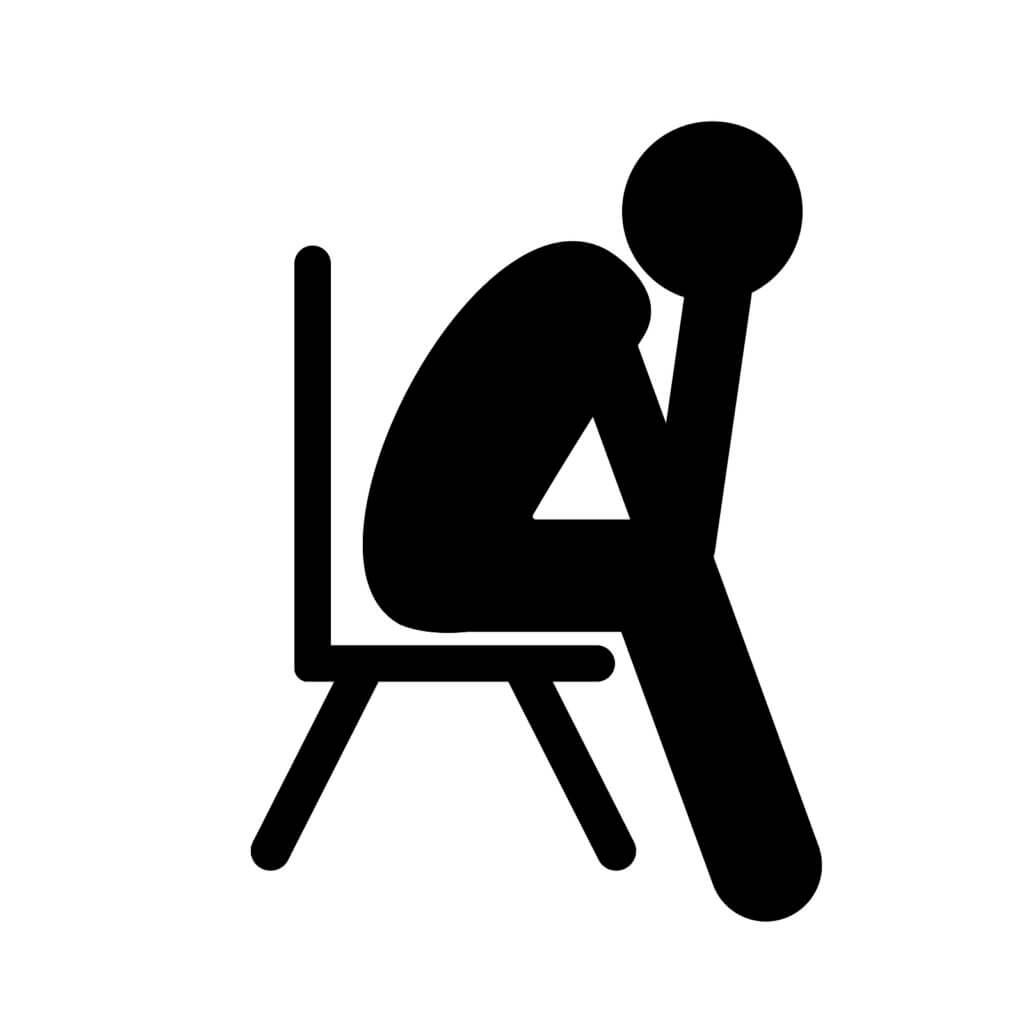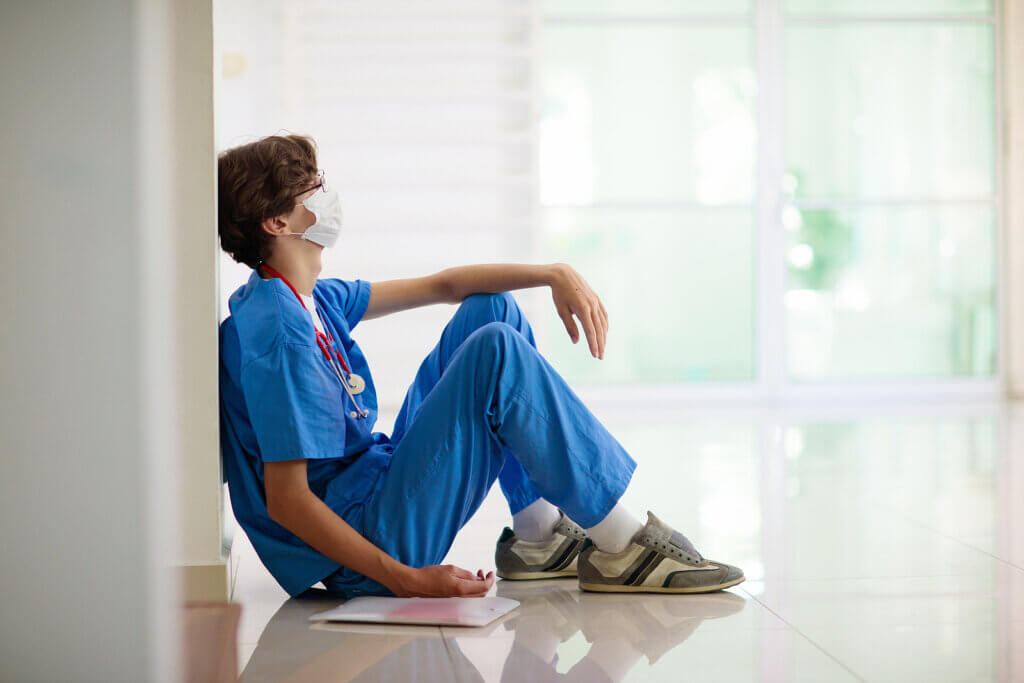Table of Contents
How Prolonged Sitting Impacts Lower Abdominal Health: Unraveling the Connection
Do you find yourself sitting for extended periods, whether it's due to your desk job, long commutes, or leisure activities like watching television? If so, it's vital to understand the potential health risks associated with this sedentary behavior, particularly its impact on lower abdominal health. This comprehensive guide delves into why sitting for prolonged durations can lead to lower abdominal problems, offering insights into the scientific rationale behind this connection, the specific health issues it can cause, and the preventive measures you can take.
The Science Behind the Sitting and Health Link
Grasping the full spectrum of the adverse impacts of prolonged sitting on lower abdominal health requires an exploration into the physical changes our bodies experience during sustained periods of inactivity.
Reduced Muscle Activity
During long durations of sitting, our large muscle groups, specifically those in our lower body and abdomen, exhibit a notable decrease in activity. This diminished muscle activity triggers a series of metabolic shifts, including a reduced calorie burn rate and decreased insulin sensitivity. Over time, these alterations can negatively affect our lower abdominal health.
Disrupted Circulation
Prolonged inactivity also impacts our circulatory system. When we sit for extended periods, our blood flow slows down, especially in the lower half of our body. This decreased circulation can lead to a condition called venous stasis, where blood accumulates in our lower limbs and abdomen. The pooling of blood can trigger various problems, including swelling, bloating, and in severe cases, deep vein thrombosis (DVT), a potentially life-threatening condition.
Compressed Abdominal Organs
One often under-discussed consequence of prolonged sitting is the compression of our abdominal contents, particularly our digestive organs. Maintaining a seated posture for long intervals can exert significant pressure on these organs, which can interfere with their standard function. This includes disruptions in the digestion of food and absorption of nutrients, potentially resulting in various digestive issues. These complications can range from minor annoyances, like bloating and discomfort, to severe conditions such as constipation, reinforcing the need for regular movement.
Increased Pelvic Floor Pressure
Alongside abdominal compression, extended sitting also places considerable pressure on our pelvic floor – a set of muscles situated at the base of the pelvis. These muscles support critical organs, including the bladder and intestines, and their function can be compromised due to continuous pressure. This can lead to pelvic floor disorders over time, including urinary incontinence and pelvic organ prolapse, causing discomfort and disrupting standard lower abdominal function.
Hindered Lymphatic Drainage
Our lymphatic system, responsible for eliminating waste and toxins from our body tissues, can be significantly affected by long periods of sitting, particularly impacting the lower abdomen and legs. Poor lymphatic drainage can result in lymphedema, characterized by swelling in the legs and abdomen, potentially raising the risk of infection and certain types of cancer.

Lower Abdominal Problems Associated with Prolonged Sitting
Having a firm grasp on the scientific relationship between prolonged sitting and physical changes is of paramount importance. It is equally critical to understand the specific lower abdominal health issues that can stem from this sedentary behavior.
Digestive Complications
Long stretches of sitting can cause a slowdown in digestion, leading to a variety of digestive problems. These issues include bloating, constipation, and even an elevated risk of diverticulosis, a condition characterized by the formation of small pouches in the lining of the digestive tract.
Lower Abdominal Discomfort and Pain
Prolonged periods of sitting, especially if accompanied by poor posture, can result in discomfort and pain in the lower abdomen. This could be attributed to the constant pressure and compression exerted on the abdominal contents or muscular imbalances in the lower body and core.
Heightened Risk of Hernia
A hernia develops when an organ pushes through an opening in the tissue or muscle meant to contain it. Prolonged sitting, particularly when combined with straining actions like heavy lifting, can enhance the likelihood of developing hernias in the lower abdominal region.
Increased Propensity for Weight Gain and Metabolic Syndrome
Sedentary behaviors such as prolonged sitting are associated with weight gain and a heightened risk of metabolic syndrome. Metabolic syndrome is a group of conditions including elevated blood pressure, high blood sugar, excess body fat around the waist, and abnormal cholesterol levels. Both these conditions can exert strain on the lower abdomen, leading to additional health complications.

Preventive Measures and Lifestyle Changes
The prospect of the potential harm prolonged sitting can cause to your lower abdominal health might be intimidating. However, by proactively implementing a few simple lifestyle changes, you can significantly decrease these risks and safeguard your health.
Incorporating Regular Movement
An essential part of mitigating the harmful effects of prolonged sitting is infusing regular movement into your daily routine. Try to make a conscious effort to stand, walk around, or stretch at least once every half hour. This simple action can help boost circulation, stimulate muscular activity, and reduce pressure on your lower abdomen.
Committing to Regular Exercise
Maintaining a routine of regular physical activity can play a critical role in ensuring your overall and specifically lower abdominal health. Incorporate a balanced mix of both cardiovascular (aerobic) and strength-training exercises into your fitness regime. Aim for a minimum of 150 minutes of moderate-intensity aerobic activity or 75 minutes of vigorous activity per week, complemented with strength exercises on two or more days a week.
Optimizing Your Work Environment
Ensuring that your workspace is ergonomically designed to support your body can help minimize the strain on your lower abdomen. Adjust the height of your chair to ensure your feet are flat on the ground, with your knees level with your hips. Keep your back straight and your shoulders relaxed to maintain good posture while sitting.
Maintaining a Balanced Diet
A well-balanced, nutritious diet plays an integral role in supporting your digestive health and maintaining a healthy body weight, which can help reduce strain on your lower abdomen. Prioritize incorporating foods rich in fiber into your diet to aid in digestion and stabilize blood sugar levels. Additionally, remember to stay adequately hydrated throughout the day to support your body's overall functions.
Cultivating Mindfulness and Stress Management
Prolonged sitting, particularly when it's related to work or activities that require intense concentration, can contribute to increased stress levels. This psychological stress can, in turn, adversely affect your lower abdominal health. Cultivating mindfulness through practices such as meditation, deep breathing, and yoga can be an effective way to manage stress levels. Regularly taking time out of your day for these practices can lead to improvements in both your mental and physical health.
Regular Medical Checkups
Routine medical checkups can play a crucial role in early detection and prevention of health issues related to prolonged sitting. Regular screenings can help identify potential problems before they become serious. Discuss your lifestyle, including your sitting habits, with your healthcare provider so they can provide personalized advice and preventive measures.
Use of Standing Desks or Active Sitting Chairs
To combat the ill effects of prolonged sitting, consider incorporating standing desks or active sitting chairs into your workspace. Standing desks allow you to alternate between sitting and standing, reducing the total amount of time you spend sitting. Active sitting chairs, on the other hand, require you to engage your core muscles to maintain balance, thus promoting muscle activity even when you're seated.
Understanding the Impact on Gut Microbiota
As we delve deeper into the link between prolonged sitting and lower abdominal issues, it becomes increasingly evident that our gut microbiota — the complex community of beneficial microorganisms residing in our digestive tract — plays a significant role in our overall health.
The Upset of Microbiota Balance
A sedentary lifestyle, marked by prolonged periods of inactivity, can lead to an imbalance in the composition of our gut microbiota. This imbalance, also known as dysbiosis, can have serious implications for our health. Dysbiosis has been associated with an array of lower abdominal issues, including inflammatory bowel diseases such as Crohn's disease and ulcerative colitis, irritable bowel syndrome (IBS), and metabolic syndrome, a condition linked to increased risk of heart disease and type 2 diabetes.
The Influence on Our Immune System
Our gut microbiota and our immune system are closely intertwined. Approximately 70% of our immune system is located in our gut, making the balance of our gut microbiota crucial for our body's immune responses. Disruptions to the gut microbiota caused by prolonged sitting can therefore lead to compromised immunity, potentially increasing our susceptibility to infections, systemic inflammation, and even autoimmune diseases.
The Potential Link to Mental Health
Increasingly, researchers are exploring the concept of a gut-brain axis — a bidirectional communication system linking the health of our gut microbiota with our brain. Emerging studies suggest that disruptions to gut microbiota might not just affect our physical health, but could also have repercussions on our mental health. The implications of this are significant. Prolonged sitting, by adversely affecting our gut microbiota, could indirectly contribute to mental health disorders such as anxiety and depression.
The Role in Nutrient Absorption
Our gut microbiota plays an essential role in the digestion and absorption of nutrients from the food we consume. When the balance of these microorganisms is disturbed due to prolonged sitting, it may impair the body's ability to effectively extract and utilize vital nutrients. Over time, this could lead to nutritional deficiencies that can exacerbate lower abdominal issues and negatively impact overall health.
The Connection to Weight Management
Interestingly, our gut microbiota also plays a significant role in weight regulation. Disruptions in the balance of these microorganisms, which can occur due to extended periods of inactivity, may contribute to weight gain and obesity. These conditions not only further strain the lower abdomen but are also associated with a myriad of other health issues.
The Impact on Sleep Patterns
Recent research has also shed light on the relationship between gut microbiota and our sleep patterns. Disruptions to the gut microbiota can influence our body's internal clock or circadian rhythm, potentially leading to sleep disturbances. Poor sleep quality or insufficient sleep can further exacerbate lower abdominal problems and negatively impact our overall well-being.

The Role of Stress in Lower Abdominal Problems
While it's essential to understand the physiological effects of prolonged sitting, we must not overlook the potential psychological impacts. One key psychological factor that can significantly exacerbate lower abdominal problems is stress, which is often linked to sedentary behaviors.
The Intersection of Stress and Digestive Health
High levels of stress can wreak havoc on our digestive system. They can affect gut motility, the contractions of the muscles in the gastrointestinal tract that enable the movement of food from the stomach through the intestines. This can lead to a variety of digestive issues, such as constipation, where the slow movement of food leads to hard and dry stools, or diarrhea, where food moves too quickly, resulting in loose and watery stools.
The Vicious Cycle of Sedentary Lifestyle and Stress
Interestingly, prolonged sitting, especially when it's work-related, can serve to heighten stress levels. This could be due to the pressure of deadlines, the lack of physical activity leading to feelings of restlessness and anxiety, or the simple fact that sitting for long periods can lead to discomfort and physical pain, which in itself can be a source of stress.
The Connection to Mental Health Disorders
Beyond digestive issues, high levels of stress linked to a sedentary lifestyle can contribute to mental health disorders such as anxiety and depression. These conditions not only affect our overall wellbeing but can also exacerbate lower abdominal problems. The interplay between stress, mental health, and gut health underscores the complexity of the effects of prolonged sitting.
The Impact on Sleep
Stress and sleep are closely interconnected. High levels of stress can lead to sleep issues such as insomnia, and poor sleep can in turn lead to increased stress levels. This again forms a negative cycle that could worsen lower abdominal problems and have broad implications for health and wellbeing.
Stress Management for Abdominal Health
Considering the significant role stress plays in lower abdominal health, incorporating stress management strategies into daily routines can be beneficial. These could include mindfulness exercises, regular physical activity, and ensuring sufficient sleep. Moreover, seeking professional help when necessary can provide additional support in managing stress effectively.

Medical Conditions Related to Prolonged Sitting
There are several medical conditions that can be directly linked to prolonged sitting. Recognizing these conditions is crucial as it can lead to early detection, timely intervention, and possibly prevent further complications.
Hemorrhoids
Hemorrhoids, also known as piles, are swollen veins located around the anus or in the lower rectum. They can be associated with prolonged periods of sitting. Hemorrhoids can be internal or external, with the former located inside the rectum and the latter under the skin around the anus. Symptoms may include discomfort, itching, pain, and bleeding during bowel movements.
Varicose Veins
Extended periods of sitting can also contribute to the development of varicose veins, particularly in the lower body. Varicose veins are twisted, enlarged veins near the surface of the skin, usually in the legs and ankles. While they are often considered a cosmetic issue, they can cause aching pain and discomfort, and can sometimes lead to more serious problems.
Pelvic Floor Dysfunction
Another condition that can be linked to prolonged sitting, particularly with improper posture, is pelvic floor dysfunction. The pelvic floor is a set of muscles in the pelvis that supports various organs, including the bladder, intestines, and in women, the uterus. Pelvic floor dysfunction is a condition where individuals have difficulty controlling these muscles.
Deep Vein Thrombosis (DVT)
Deep Vein Thrombosis, or DVT, is another serious health condition linked to prolonged periods of inactivity, including sitting. DVT occurs when a blood clot forms in one of the deep veins in your body, usually in your legs. If the clot breaks loose, it can travel through your bloodstream and lodge in your lungs, causing a life-threatening condition known as pulmonary embolism. Symptoms of DVT can include swelling, pain, warmth, and redness in the affected area.
Prostatitis
For men, extended periods of sitting can increase the risk of prostatitis, a painful condition that involves inflammation of the prostate gland. This inflammation can lead to difficulty urinating, pelvic, groin, or lower back pain, and sometimes flu-like symptoms. Chronic prostatitis can affect the quality of life, leading to difficulties with urination and sexual function.
Lower Back Pain
One of the most common ailments associated with prolonged sitting is lower back pain. Continuous sitting can lead to poor posture and excessive stress on the muscles and discs in your lower back, leading to pain and discomfort. In severe cases, it can cause more serious conditions like herniated discs and chronic back pain.
Poor Posture and Musculoskeletal Issues
Long sitting hours, particularly with poor ergonomics, can lead to poor posture and various musculoskeletal issues. These may include conditions such as kyphosis (excessive outward curvature of the spine, causing hunching), cervical problems (related to neck), and musculoskeletal disorders of the shoulder and wrist, especially if you work on a computer. These conditions can lead to chronic pain and can significantly affect the quality of life.
Conclusion
While the modern lifestyle often necessitates prolonged sitting, understanding its potential impact on your lower abdominal health is the first step toward mitigating these risks. By incorporating regular movement, exercise, ergonomic practices, and a balanced diet into your daily routine, you can counteract many of the negative effects of prolonged sitting. In turn, you'll promote better lower abdominal health and overall well-being.
Sources
- https://www.ncbi.nlm.nih.gov/pmc/articles/PMC5618737/
- https://www.huffingtonpost.co.uk/entry/how-sitting-all-day-affects-the-body_uk_5930184de4b0540ffc84d81c
- https://oshwiki.osha.europa.eu/en/themes/musculoskeletal-disorders-and-prolonged-static-sitting
- https://www.researchgate.net/publication/357526897_EFFECT_OF_PROLONG_SITTING_ON_ABDOMINAL_CORE_STRENGTH_AN_OBSERVATIONAL_STUDY




Comments
Loading…